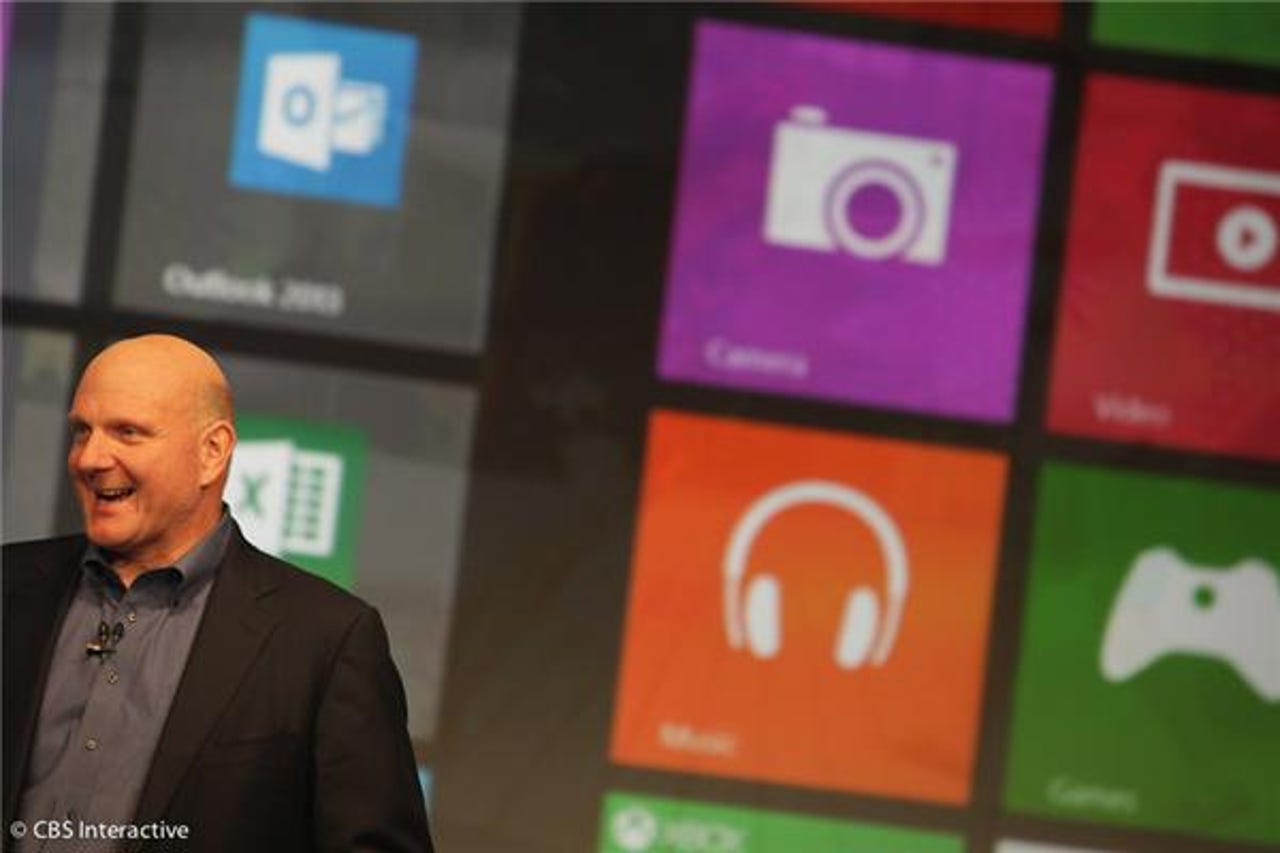Microsoft's Windows 8 event: 5 key points


Microsoft formally launched its Windows 8 operating system today, sabering the champagne bottle (so to speak) on one of its two cash cow software platforms. (The other is the Office productivity suite.)
The event, which was live-streamed on the Web, featured chief executive Steve Ballmer, Windows chief Steven Sinofsky, Windows program management chief Julie Larson-Green and Windows client and ecosystem chief Michael Angiulo.
Heavy on pomp and light on substance, the presentation nonetheless gave us a view into what kind of bet the Redmond, Wash.-based tech company is making with the announcement.
Five key quotes and what they tell us:
1.) "We shunned the incremental. We boldly reimagined Windows." (Sinofsky)
Thanks to the new "chicletized" user interface, anyone who looks at a Windows 8 computer will instantly realize that Microsoft is departing from the traditional desktop computing experience. It's hard to understate the importance of this, because it was Microsoft that popularized the old convention. (The company didn't do away with it completely -- look hard enough and you'll find the original tucked inside.)
Apple's success is due in large part to it bringing computing conventions to pocket-sized mobile devices; thankfully Microsoft mirrored those motives, and not just the UI.
Finally, the Windows 8 experience marks a significant step away from the fundamental idea of many-windows-on-one-screen multi-tasking, which was Windows' calling card for most of its life. Now, it's one vista at a time. (Pun intended.)
2.) "We see today as a grand opening." (Sinofsky)
Here, Sinofsky is talking about the Windows online store, which (like Google's) is modeled after Apple's App Store. But forget that detail for a second -- consider the fact that this is the final nail in the coffin for store-bought, disc-bound software, now delivered in bits over the air. For almost two decades, the Internet was the computer's killer app. Here, they are one in the same.
3.) "Windows 8 shatters perceptions of what a PC now really is." (Ballmer)
The term "PC" was popularized by IBM's 5150 but quickly became synonymous with Microsoft as it conquered the consumer sector. (Nowhere is that more clear than in the long-simmering argument "Mac or PC?" -- since when are MacBooks not personal computers?) Over the last decade we've seen phones move away from pagers and toward computers, likewise gaming consoles, likewise televisions, and likewise those funny things called tablets. Microsoft has always approached this from a desktop-first perspective; today, it's finally embracing the idea that a PC could be shaped like a pack of cigarettes or a Ford Fiesta, even if the needs are similar.
4.) "Picture your start screen filled with everyone and everybody who's most important to you." (Ballmer)
This is a minor quote in the grand scheme of the event, but it actually hints at something quite important. The term "social" has been thrown around quite a bit with regard to Facebook and Twitter and the like, but the point is that computers are regressing as simple machines to be manipulated and progressing as platforms to enable some of our most basic human needs -- such as communication. Other people (and their computers) were hardly on the radar of early Windows machines; today, we can't imagine computers without imagining the communities their users occupy. In some ways, people have replaced files.
5.) "Windows 8 is a major milestone in the evolution and revolution of computing." (Sinofsky)
Microsoft kicked off the event with this proclamation, but it's only partially true -- Windows 8 is a reflection of computing's greater evolution but it's far more of a revolution for Microsoft itself. It's hard to believe that the user experience we see today originated on the Zune portable media player, of all things, but in many ways that makes complete sense: Zune was, of course, portable, and that's the point. This is also remarkable for another reason: instead of Microsoft trickling down elements of its preeminent product, Windows, to other platforms, the reverse occurred: the Metro UI crept from Zune to Kin to Phone to Windows. For Redmond, that's swimming upstream.
None of these points are surprises, of course, but it's good to take a moment and reflect on what this means for Microsoft and personal computers in general. After years of incremental change (yet monumental declarations), we're finally getting a major leap to justify the bluster. There's no turning back now.
Photo: Sarah Tew/CBSi